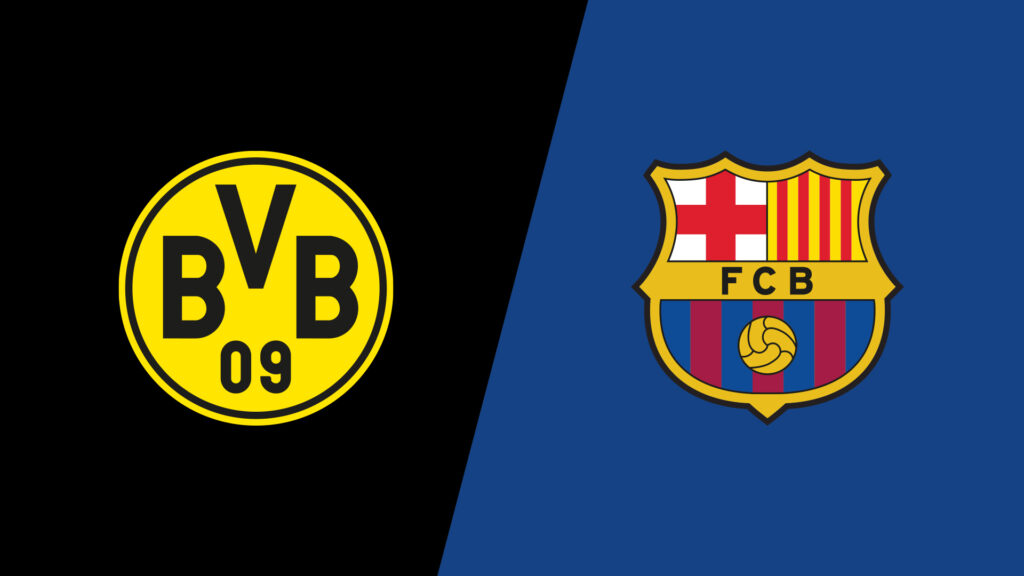Barcelona Edge Past Dortmund to Reach Champions League Semi-Finals Despite Second-Leg Defeat

Barcelona have secured their spot in the UEFA Champions League semi-finals, but the path to their qualification was far from smooth. Despite a 3-1 loss to Borussia Dortmund in the second leg of their quarter-final clash, Barcelona advanced on aggregate, thanks to their dominant 4-0 victory in the first leg. The final scoreline of 5-3 over two legs reflects a tie that began under Barcelona’s complete control but ended in a nail-biting finish.
Dortmund Fight Back With Intensity, But Fall Short
Dortmund came into the second leg needing a miracle—and they nearly pulled it off. With a four-goal deficit to overcome, the German side started aggressively, pressuring Barcelona from the outset. Their early efforts paid off when Karim Adeyemi scored, giving the home crowd hope. Jan-Niklas Beste quickly doubled their lead, cutting Barcelona’s aggregate advantage in half.
By halftime, Barcelona’s comfortable position from the first leg was seriously threatened. Dortmund’s attacking play was fluid, and Barcelona struggled to keep up with their intensity. The visitors looked shaky, and their defense was under constant pressure.
The game became even more tense in the second half when Dortmund scored their third goal, leaving the aggregate score at a fragile 5-3. The atmosphere at Signal Iduna Park was electric, and it seemed like Barcelona’s grip on the semi-finals was slipping away.
However, just as Dortmund seemed on the verge of a historic comeback, fortune favored Barcelona. A defensive error saw Ramy Bensebaini inadvertently score an own goal, restoring a two-goal lead for the visitors on aggregate. This unexpected turn of events gave Barcelona the breathing room they needed to hold on until the final whistle.
Barcelona’s Defensive Issues Emerge Under Pressure
Barcelona’s defense, which is usually solid and well-organized, appeared far from secure during this match. The center-back pairing of Ronald Araújo and Jules Koundé struggled to deal with the speed and directness of Dortmund’s attackers. Simple runs from the German forwards often caught them out of position, and poor communication only added to the problem.
Dortmund exploited the spaces between Barcelona’s defensive lines, taking advantage of slow transitions and ineffective pressing. Without the ball, Barcelona looked disjointed and failed to shut down the space that Dortmund’s attackers thrived in. Goalkeeper Wojciech Szczęsny, who had been relatively quiet in the first leg, was kept busy, making several crucial saves to prevent a further collapse.
Missed Opportunities and Tactical Errors Add Drama
Despite Dortmund’s impressive comeback attempt, Barcelona had their own chances to finish the tie earlier. Raphinha, in particular, had a golden opportunity to score but hesitated at the wrong moment. Fermin Lopez also missed a clear-cut chance in front of goal, and Barcelona’s final third play was marred by miscommunication and rushed decision-making.
Barcelona manager Hansi Flick’s tactical choices were also questionable. His substitutions, aimed at stabilizing the game, seemed to backfire. Instead of slowing the match down and maintaining possession, his defensive changes allowed Dortmund to regain control of the midfield. This led to more pressure being applied on Barcelona’s defense, resulting in a nervy finish.
Had Barcelona retained possession and managed the game’s tempo, they would have avoided much of the last-minute drama. Instead, they allowed Dortmund to push forward, which created unnecessary tension.
Lessons Learned as Barcelona Head to the Semis
Although Barcelona were fortunate to progress, their performance in the second leg highlighted key areas for improvement. Their 4-0 win in the first leg was crucial in ensuring their overall qualification, but the second leg exposed vulnerabilities, particularly in defense and under pressure situations.
Barcelona must address these issues before their semi-final clash. The defense looked fragile when tested by a fast-paced opponent, and against more potent teams, these lapses could be fatal. Tactical consistency, better control in high-pressure moments, and a more organized defense will be essential if Barcelona are to challenge for the Champions League title.
What’s Next for Barcelona?
Barcelona now look ahead to their semi-final encounter, where they will face even tougher competition. With teams like Manchester City, Real Madrid, and Bayern Munich still in the mix, the next round will be a true test of their resilience. To progress further, Barcelona will need to find better balance between their attacking brilliance and defensive solidity.
While the victory over Dortmund marks progress, the team must learn from their mistakes in this tie. If they can blend their offensive strength with improved discipline and composure, Barcelona could be serious contenders for the Champions League trophy.






